South Korea’s Hyundai Motor Co and a local government partner are aiming to sign a final deal this week on a low-cost automaking joint venture, despite stiff opposition from labor unions that fear the move would cause job losses and cut wages.
In a first such move for South Korea’s biggest automaker, Hyundai and the southwestern city of Gwangju on Tuesday agreed on a preliminary deal to jointly build a new factory that is to have an annual capacity of 100,000 mini-sport utility vehicles (SUVs) starting in 2021.
The move would help Hyundai produce the model at lower cost and cut reliance on its unionized workers, who have gone on strikes almost every year to raise wages.
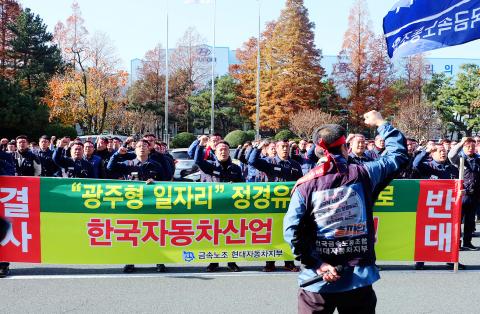
Photo: Reuters / Yonhap news agency
It would also better align the automaker with the government of South Korean President Moon Jae-in, who has been struggling to keep manufacturing jobs from moving overseas amid US President Donald Trump’s threats to impose hefty tariffs on vehicle imports.
Gwangju is home to Hyundai affiliate Kia Motors Corp’s factories and the political stronghold of the liberal Moon government, which has made job creation its top election pledge.
Hyundai is expected to invest 53 billion won (US$47.6 million) for a 19 percent stake in the joint venture, while Gwangju would spend 59 billion won for a 21 percent stake.
The remaining 167 billion won would be provided by suppliers and the local economy.
The preliminary deal includes annual wages of 35 million won for workers, a city official said.
That would be less than half the average 92 million won wage for existing Hyundai workers.
Hyundai declined to comment.
The plan, which the city government said would create 12,000 jobs, has already met with disapproval from Hyundai and Kia’s labor unions.
Hyundai’s more than 50,000-member union on Tuesday warned of a full strike, fearing that the move might put pressure on wages and potentially take away production and jobs from the company’s existing plants in Ulsan and other South Korean cities.
Union members wearing red headbands yesterday rallied at Hyundai’s factories in southeastern Ulsan with banners that read: “South Korea’s auto industry will go bankrupt.”
The project would lead to “bad jobs, which bring down workers’ wages by half,” said Ha Bu-young, head of Hyundai’s national union.
The labor union said that an additional plant would exacerbate excess production capacity at the automaker, which is struggling with sluggish exports to the US and other countries and posted a plunge in quarterly net profit.
Hyundai’s South Korean production last year fell to 1.65 million vehicles, the lowest level since 2009, data from South Korea’s car association showed.
“We are concerned that the joint venture will expand production beyond the mini-SUVs and take a toll on our production and jobs,” a Hyundai worker in Ulsan, home to the world’s biggest automaking complex, told reporters.
Kia’s union also called for a withdrawal of the plan, which it said would add pressure to the niche, shrinking mini-SUV segment, of which Kia holds a 69 percent share.
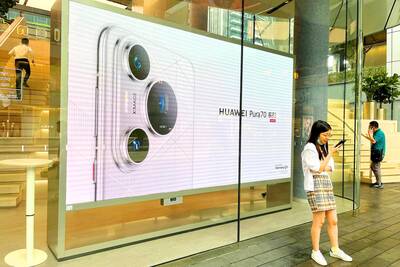
Huawei Technologies Co’s (華為) latest smartphones carry a version of the advanced made-in-China processor it revealed last year, results from an independent analysis showed. This underscored the Chinese company’s ability to sustain production of the controversial chip. The Pura 70 series unveiled last week sports the Kirin 9010 processor, research firm TechInsights found during a teardown of the device. This is a newer version of the Kirin 9000s, made by Semiconductor Manufacturing International Corp (SMIC, 中芯) for the Mate 60 Pro, which had alarmed officials in Washington who thought a 7-nanometer chip was beyond China’s capabilities. Huawei has enjoyed a resurgence since
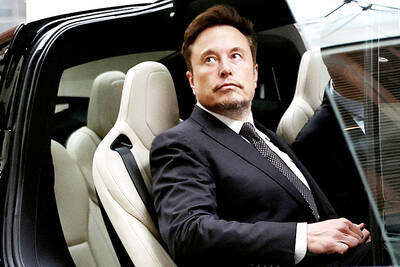
purpose: Tesla’s CEO sought to meet senior Chinese officials to discuss the rollout of its ‘full self-driving’ software in China and approval to transfer data they had collected Tesla Inc CEO Elon Musk arrived in Beijing yesterday on an unannounced visit, where he is expected to meet senior officials to discuss the rollout of "full self-driving" (FSD) software and permission to transfer data overseas, according to a person with knowledge of the matter. Chinese state media reported that he met Premier Li Qiang (李強) in Beijing, during which Li told Musk that Tesla's development in China could be regarded as a successful example of US-China economic and trade cooperation. Musk confirmed his meeting with the premier yesterday with a post on social media platform X. "Honored to meet with Premier Li
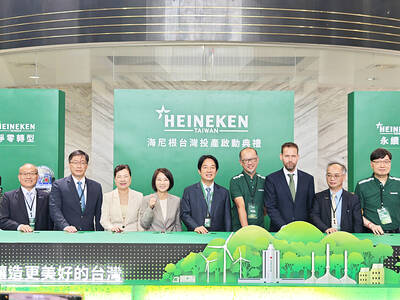
Dutch brewing company Heineken NV on Friday announced an investment of NT$13.5 billion (US$414.62 million) over the next five years in Taiwan. The first multinational brewing company to operate in Taiwan, Heineken made the statement at a ceremony held at its brewery in Pingtung County. It also outlined its efforts to make the brewery “net zero” by 2030. Heineken has been in the Taiwanese market for 20 years, Heineken Taiwan managing director Jeff Wu (吳建甫) said. With strong support from local consumers, the Dutch brewery decided to transition from sales to manufacturing in the country, Wu said. Heineken assumed majority ownership and management rights
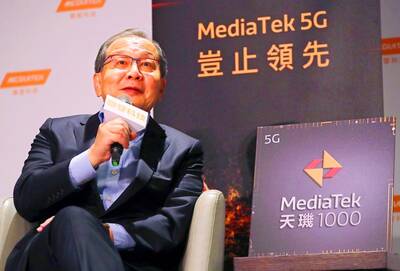
GROWTH DRIVERS: The firm expects to benefit from generative AI applications for smartphones, higher average selling price of flagship chips and market share gains Smartphone chip designer MediaTek Inc (聯發科) yesterday said it estimates that revenue would expand at an annual rate of about 15 percent this year, as a proliferation of generative artificial intelligence (AI) applications for premium smartphones are fueling demand for its flagship smartphone chips. It expects its smartphone chip revenue to outgrow the company’s average growth rate this year, benefiting primarily from the higher average selling price of its flagship smartphone chips and market share gains. The flagship chip revenue is to soar 50 percent year-on-year this year, MediaTek told an investor conference yesterday. As a whole, this year’s gross margin is